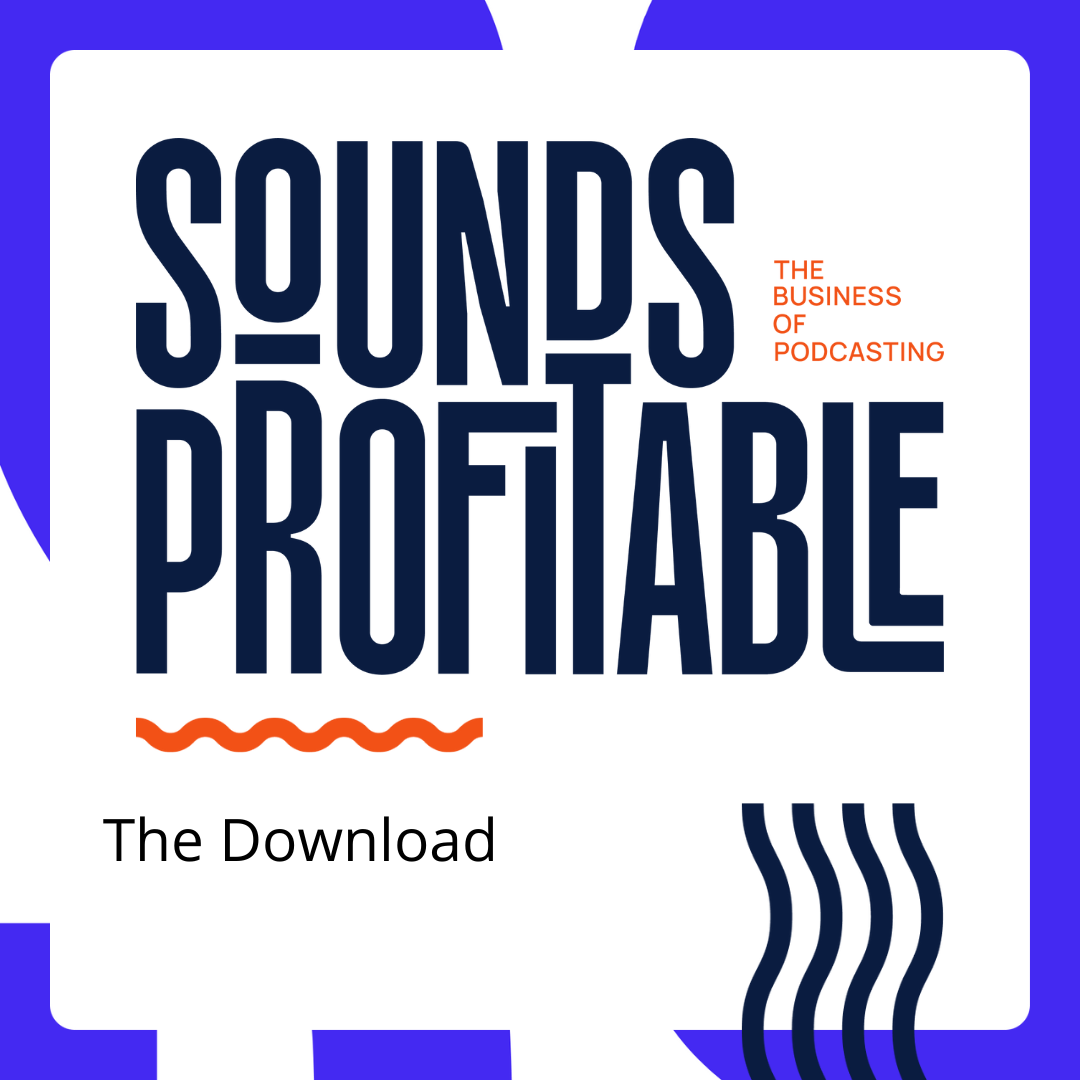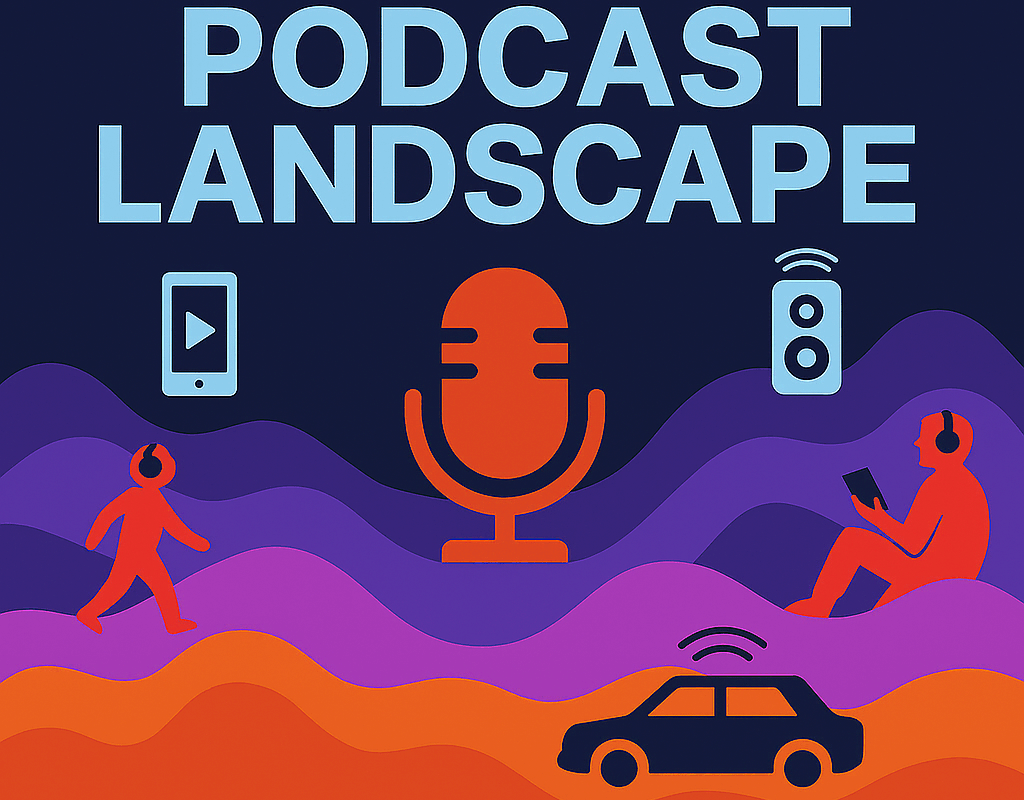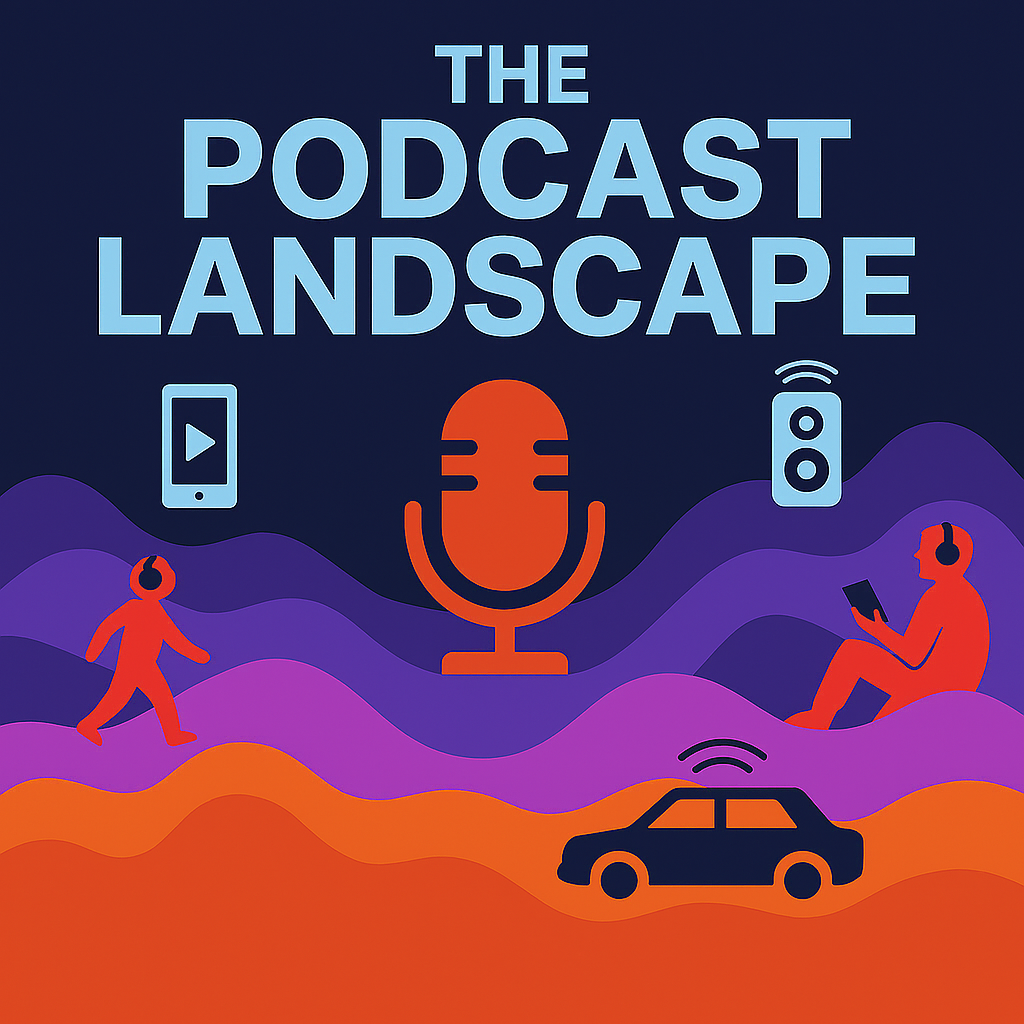Manuela: This is The Download from Sounds Profitable, the most important news from this week and why it matters to people in the business of podcasting. I’m Manuela Bedoya.
Shreya: And I’m Shreya Sharma. This week: Podcasting a ‘bright spot’ at SXM Media, Amplifi Media CEO counters ‘jarring headlines,’ new Black Podcast Listener Report from SXM and Mindshare, and the state of Google in podcasting.
Let’s get started.
Podcasting remains ‘a bright spot’ at SXM Media
Manuela: ‘Tis the season of quarterly earnings calls. It seems like we get a batch of these every three months!
SiriusXM has published their Q4 and full-year results for 2022. Overall the company saw a 4% year over year increase in revenue, hitting 9 billion dollars. The company shouted out its agreements with, as the official copy puts it, “podcast powerhouses” like Crooked Media, Freakonomics, and a 24/7 original comedy channel captained by Conan O’Brien’s Team Coco. Podcasting is on the mind at SXM. CEO Jennifer Witz spoke highly of the company’s podcasting arm during the call. To quote from the transcript:
“In a challenging ad market, podcasts continue to be a growth opportunity for us. This past quarter, we expanded our podcast offerings while doubling down on the shows that have proven most successful with five of the top 20 shows in Edison Research’s top 50 podcast rankings, the most of any network.”
Witz went on to say podcasting was a bright spot for the industry overall and SXM in particular, driving their 34% increase in off-platform business in 2022. We’ve said it before and will say it again: it’s a good day to hear good news in podcasting.
Podcasting is doing fine; thank you
Shreya: Last week an opinion piece from Amplifi Media CEO Steve Goldstein was published on RainNews, built to assuage fears over recent doom-and-gloom media coverage. A quote from Goldstein’s opening:
“If you are reading the headlines about podcasting, you might be a little nervous. There has been a lot of confusing and contradictory chatter about what the drop in new podcasts in 2022 means. Has the podcast bubble burst? Are podcasts on the way out? Not likely.”
The piece puts to bed the air of uncertainty as recent reports show a decrease in active podcasts. Goldstein points to the marked increase in podcast production at the beginning of the pandemic, along with air fryer sales, used car sales, and views for cooking videos on YouTube. Now the Field of Dreams era of podcasting is over. Companies can no longer invest with the philosophy of “if you build it, they will come.” Which leads to Goldstein’s conclusion. Quote:
“Just like all media, the podcast space is dynamic, exciting and rapidly evolving. It’s full of possibility and wonder. We just need a little more rigor and a little less throwing spaghetti against the wall. The next generation of podcasts will likely have greater research, focus and muscle behind them. Companies that produce and promote fewer high-quality podcasts will be better positioned for optimal growth. So, let’s get past the jarring headlines.“
SXM Media and Mindshare publish Black Podcast Listener Report 2.0
Manuela: SXM Media is back with the second edition of their Black Podcast Listener Report. The study is the result of over 2,500 online interviews with Black and/or African American adults in the United States during September of last year. According to SXM’s footnotes, the data was weighted for age, sex, census region of the US, and the Edison’s Infinite Dial 2022 podcasting listening statistics.
Among the findings are some promising results for advertisers. From the SXM blog post:
“The best way to win over Black podcast listeners is to run ads on shows that represent their voice, culture, and point of view. Black audiences who have listened to a podcast with a Black host in the last month are more likely to take action than those who’ve never listened to a podcast hosted by Black talent.”
82% of respondents would consider a brand if they heard their ad on a podcast with a Black host, as well as 78% saying they would purchase said brand. The recap article ends by encouraging brands who set aside ad budget to target Black audiences during February for Black History month to continue that spend throughout the year. From the article:
“Like so much of the population, Black audiences are listening to podcasts—and, as you’ve learned, they’re leaned-in and here for ads that support the shows they love.”
The State of Google and Podcasting
Shreya: Continuing the trend of earnings calls, let’s talk Google. It was a mixed bag in this year’s Q4 earnings report. Parent company Alphabet reported a 0.7 billion increase year over year in total revenue for Q4 2022. According to Insider Intelligence writer Daniel Konstantinovic, this 1% increase falls short of the anticipated revenue by nearly half a billion dollars. James Hercher, writing for AdExchanger, breaks down the more Google-relevant numbers:
“YouTube advertising was down from $8.6 billion to $7.9 billion, while the Google Display Network decreased by almost $1 billion YoY. Net income (which is to say, profit) dropped even more steeply, from $20.6 billion in Q4 2021 to $13.6 billion.”
Alongside the earnings, there has been discussion of Google and YouTube’s investment into podcasting as the search engine giant retools podcast searching. Since 2018 Google has displayed individual podcast episodes and a play button whenever searching for a specific podcast. As of mid-January the feature was removed. James Cridland’s coverage in Podnews at the time also noted the Google Podcasts app had not received any feature updates in eighteen months.
Now even the carousel of Google Podcast links in searches for podcasts is going away, but will be replaced with a new feature called What to Podcast. In a YouTube Short by Transistor Podcasting, the new feature appears to add a new section to the top of search results that shows podcasts relating to the search term. While not as easy as a play button and episode list, it does serve as a funnel to direct foot traffic into podcast apps.
Meanwhile, earlier this month, YouTube launched ad monetization for YouTube Shorts. Previously, the program had operated on a TikTok-esque fund divvied between creators who met certain engagement goals. Now any account with over 1,000 subscribers and 10 million Shorts views in the previous 90 days can earn ad revenue at a split of 45% to them and 55% to Google. Digiday’s Krystal Scanlon notes this is not as attractive a revenue split as similar programs at Facebook and TikTok, but the YouTube Shorts equivalent has a lower barrier to entry for newer accounts.
In this week’s earnings call, Google Chief Business Officer Philipp Schindler spoke on CTV, YouTube being at the top of Nielsen’s measurement of US streaming watch time, and content integration. Tuesday’s issue of Ben Thompson’s Stratechery points out it’s clear YouTube is dreaming of becoming a media streaming aggregate with the implementation of Primetime Channels on top of existing offerings like YouTube Music and NFL Sunday Ticket. From Stratechery:
“The idealized future is one where YouTube is the front-door of all video period, whether that be streaming, linear, or user-generated.”
With all their investments in YouTube and gentle downgrade of podcast presentation in the search engine, it feels like Google is becoming gently insistent podcasting’s round peg will be expected to conform to the square hole of their media platform. Podcasting likely isn’t going to come to YouTube as we know it, podcasters are simply incentivized to become YouTubers.
Shreya: Finally, it’s time for our semi-regular roundup of articles we’re calling Quick Hits. These are articles that didn’t quite make the cut for today’s episode, but are still worth including in your weekend reading. This week:
Media Briefing: The case for and against monthly and annual subscriptions in the battle for retention by Kayleigh Barber for Digiday. An excellent breakdown of the current debate between annual vs. monthly subscriptions, how they affect churn, and detailed pros and cons for both options.
Edison Research’s Weekly Insight: Of all people aged 13-34 in the US, one third listen to podcasts every day.
Manuela: And that was The Download, brought to you by Sounds Profitable! Today’s episode was built using Spooler and hosted on Triton Digital’s Omny Studio. Find out more at Spooler.fm and Art19.com
I know we went through today’s stories fast, so be sure to check out the links to every article mentioned, right in your podcast listening app, or on SoundsProfitable.com/TheDownload. And thank you for sticking with us as we bring you the top stories you might have missed from the past week. I’m Manuela Bedoya.
Shreya : And I’m Shreya Sharma. Our producers are Bryan Barletta, Gavin Gaddis, and Tom Webster. Our editors are Reece Carman and Ron Tendick. Special thanks to Art19 for hosting The Download. And thanks to you for joining us.


 "
"



